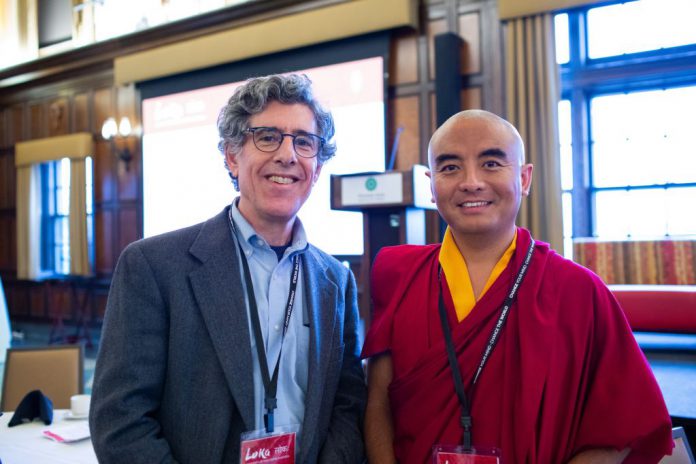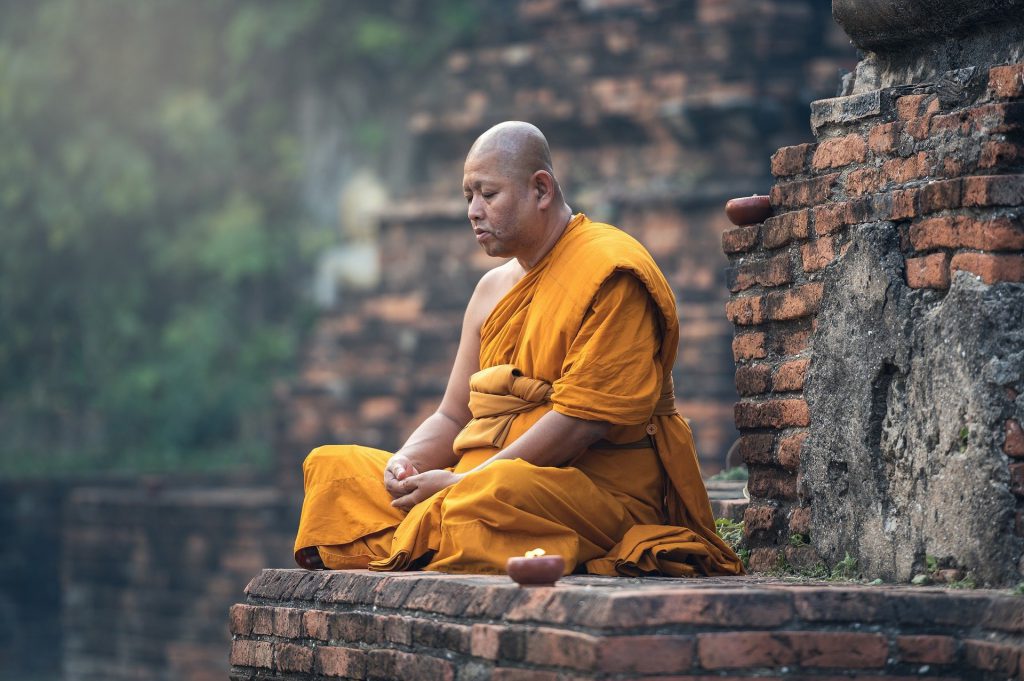
With the ever-changing social and political climate, more and more people are turning towards meditation as a tool for achieving mental stability and calmness. Meditation has long been a part of various religions such as Hinduism, Sikhism, and Buddhism to name a few. Mindfulness is one of the many ways people practice meditation. Mindfulness means being fully aware of our present thoughts and feelings without getting distracted and becoming overwhelmed by our emotions. According to research, mindfulness meditation can reduce anxiety, depression, pain and help alleviate stress.
A recent study published in the journal Neurocase found evidence of meditation slowing down the brain’s aging process. Yongey Mingyur Rinpoche (YMR), a 41-year-old Tibetan Buddhist meditation master, was studied by researchers at the University of Wisconsin-Madison and Harvard Medical School.

Using structural MRI (Magnetic Resonance Imaging) researchers scanned the brain of YMR four times over a course of 14 years. MRI scans were also conducted on a control group comprising 105 adults of a similar age. The MRI scans were then submitted to a machine learning tool called the Brain Age Gap Estimation (BrainAGE) framework. It estimates a person’s age by looking at the brain’s gray matter, which lessens in volume as a person ages.
According to Richard Davidson, professor of psychology and psychiatry at the University of Wisconsin-Madison and founder and director of the Center for Healthy Minds, taking an inventory of gray matter structure is a good way to tell brain age.
Gray matter is the neural machinery of the brain… When the brain atrophies, there is a decline in gray matter.
Richard Davidson
BrainAGE’s analysis revealed Yongey Mingyur Rinpoche’s age to be 33, 8 years younger than his actual age. Whereas the control group’s brain age was found to be in the “typical aging band”. Thus, showing that YMR’s brain aged at a slower rate than the control groups’. Yongey Mingyur Rinpoche’s brain also showed early maturation compared to the control group.
Evidence also showed no change in specific regions of YMR’s brain as compared to the controls, thus suggesting that the differences in brain-aging may arise due to coordinated changes throughout a person’s gray matter.
However, it is still unclear whether these brain changes are a result of meditation, other life factors or all of the above. Further research is needed with control groups comprising of similar backgrounds to YMR, to study the effect of meditation a little better.
Reference:
Nagesh Adluru et al. BrainAGE and regional volumetric analysis of a Buddhist monk: a longitudinal MRI case study, Neurocase (2020)
Goyal M. et al. Meditation programs for psychological stress and well-being: a systematic review and meta-analysis. JAMA internal medicine, 174(3), 357–368. (2014)



